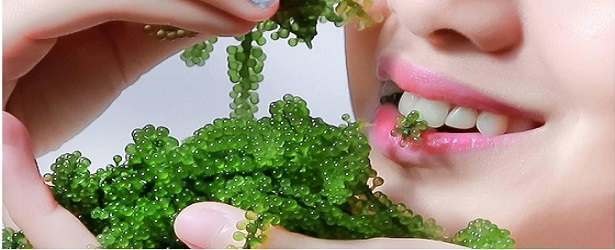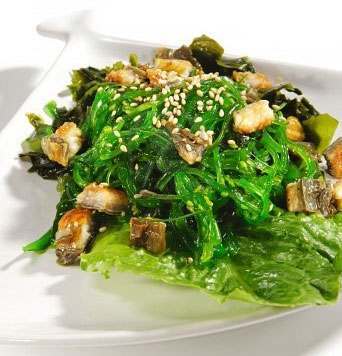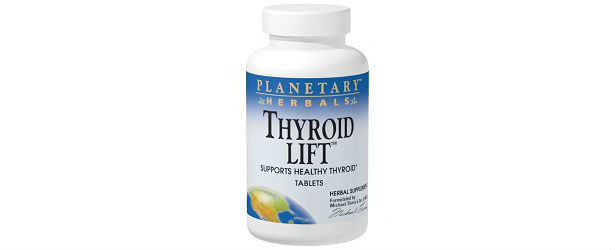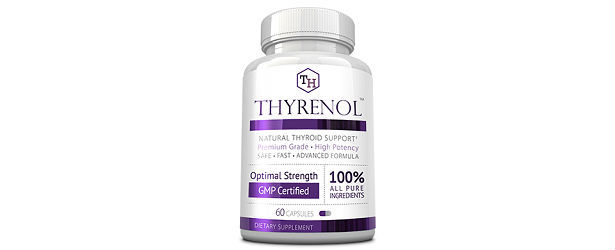
Can Seaweed Get Rid Of Goiters?
Seaweed is a very rich source of iodine and is sold in health food stores and Asian markets. However, it is still an acquired taste for Americans, who are not accustomed to it yet. But it is packed with two nutrients, essential for the production of thyroid hormones, which are selenium and iodine. Therefore, in disease like hypothyroidism, adding seaweeds, such as kelp, can help significantly in boosting up the thyroid functioning.
 Thyroid and Iodine
Thyroid and Iodine
The thyroid gland is present in front of the neck, just below the Adam’s apple. It is called the ‘master gland’ of the body and is vital for the proper functioning of our body. Thyroid uses the amino acid tyrosine and iodine for the production of hormones like thyronine and throxine. These hormones regulate temperature, growth and function of all of the cells in our body.
In addition to that, they also influence our cognitive functions like memory and concentration. If these hormones are not synthesized properly, it might lead to certain symptoms, such as weight gain, fatigue, anxiety etc.
Seaweed and Iodine
Seaweed belongs to a heterogeneous class of marine plants, consisting of algae. These plants derive their nutrition from the vast ocean.
There are many kinds of algae which make up the structure of seaweed, such as red, green and brown algae. Among them, brown algae has the most iodine content. The iodine content is the highest in the Icelandic kelp. Hijki, arame and kombu are also good reservoirs of iodine.
Seaweed and Selenium
 Seaweed is also a great source of selenium. Studies have shown that the selenium is essential for the conversion of thyroxine hormone into threonine hormone. In the absence of selenium, this conversion would not take place and hence no thyroid hormones will be produced. The recommended daily allowance, or the RDA, of selenium and iodine is 55 mcg and 150 mcg per day, respectively.
Seaweed is also a great source of selenium. Studies have shown that the selenium is essential for the conversion of thyroxine hormone into threonine hormone. In the absence of selenium, this conversion would not take place and hence no thyroid hormones will be produced. The recommended daily allowance, or the RDA, of selenium and iodine is 55 mcg and 150 mcg per day, respectively.
Add Seaweed to your Diet
Japanese use seaweed in their recipes. They add kelp flecks as a substitute of salt and seasoning to their grain dishes and soups. It can also be used in sushi. For that, take a nori leaf and put shredded vegetables and rice on it then wrap it up. Your sushi is ready, you can eat it with sauce of your liking. As seaweed is rich in nutrients, it is very beneficial for your health. But keep this in mind that it contains very high amount of potassium. Seaweed contains approximately thirty-four times more potassium as compared to a banana.
Heart arrhythmia can be triggered by excessive potassium in the body, therefore consult a doctor before adding a lot of seaweed to the diet.
Don’t Overdo to It!
Some varieties of kelp are so rich in iodine that just a few ounces of it provides approximately 3 times of the recommended daily intake of iodine. Either excess or deficiency of iodine can block the production of thyroid hormone. Iodine intake 5 times of recommended daily intake can block the production of thyroid hormone. So keep your seaweed intake in check, to keep a healthy thyroid.
TOP 5
THYROIDProducts |
|||||
| Thyraid | ThyroMend | Thyrene | SupraHealth | Blue Spring | |
|---|---|---|---|---|---|
| 1 | 2 | 3 | 4 | 5 | |
| Price (1 bottle) Price (6 bottles)best value |
$49.95 $139.80 |
$38.95 $233.70 |
$39.99 $159.96 |
$59.97 $323.84 |
$35.99 $194.35 |
| Overall Rating | 99.50% | 85.70% | 76.60% | 68% | 60.20% |
| Performance* |





|





|





|





|





|
| Speed of Results* | Extremely Fast | Good | Average | Average | Slow |
| Quality of Ingredients | Premium | Good | Good | Average | Average |
| Customer Satisfaction Evaluation | 99.20% | 84% | 74% | 68% | 60% |
| Safety Evaluation | Safe for Use | Safe for Use | Safe for Use | Safe for Use | Safe for Use |
| Customer Service Rating |





|





|





|





|





|
| Reorder Rate | Highest | Good | Good | Average | Average |
| Return Policy | Risk Free | Risk Free | Handling & Restocking Fee | Risk Free | Risk Free |
| Success Rate | 99.20% | 85% | 69.20% | 67.50% | 60% |

 Subscribe Now
Subscribe Now











